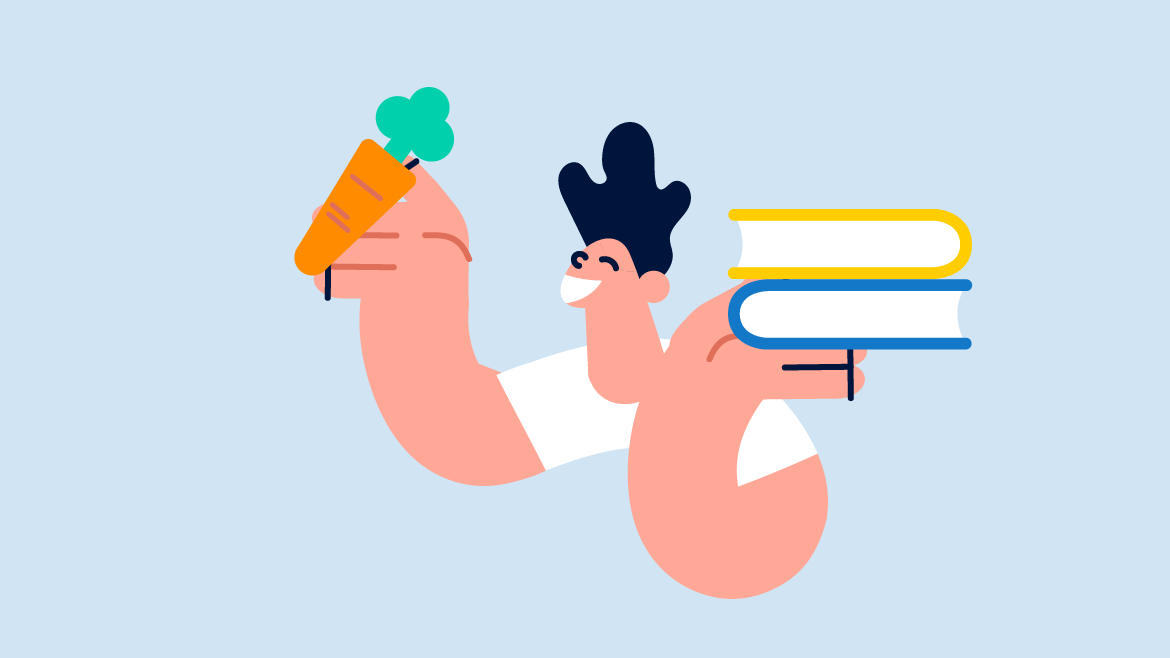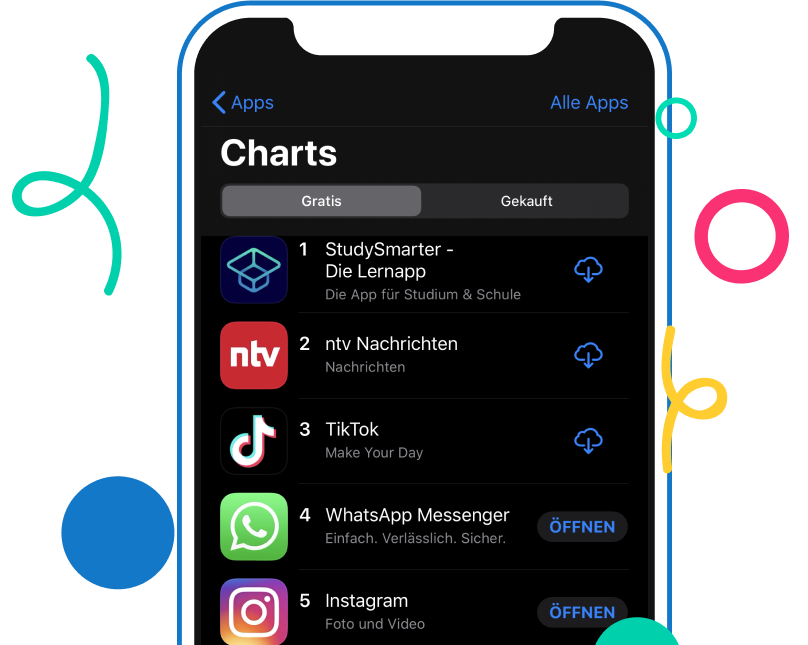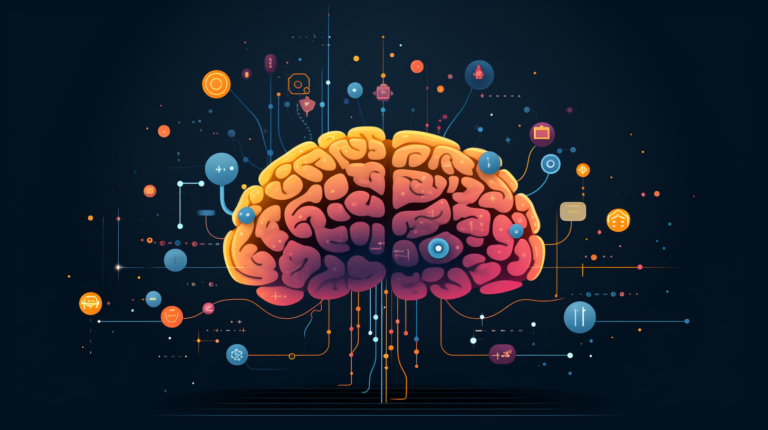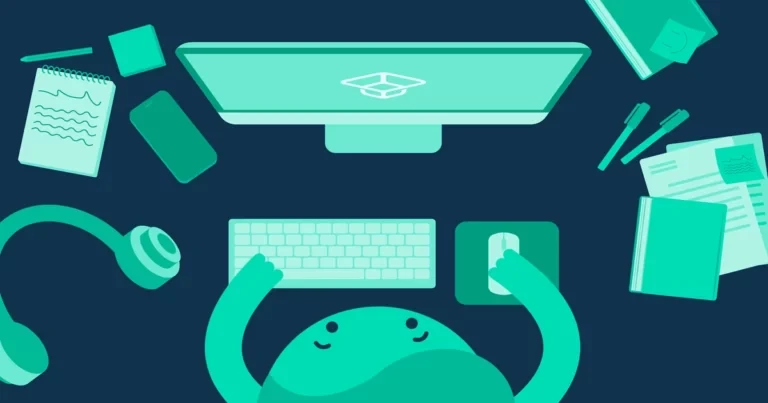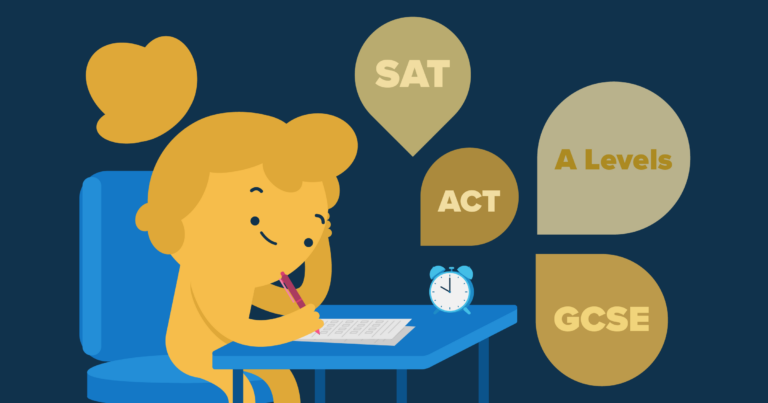Get this: App monitoring firm App Annie’s recent report shows that people spend almost five hours a day glued to their mobile phones. The report also states that TikTok was the most downloaded app globally in 2021, with users spending (ahem, wasting?!) a staggering 90% more time on there than the previous year.
Now, to be honest, I’m sure many of you (as students) are probably spending more than five hours a day on your phones (and I’m hoping it’s because you’re using the StudySmarter mobile app and not wasting precious study time scrolling mindlessly through social media😉). OK, who am I kidding … I’m just as guilty of having my eyeballs stuck to my phone screen as the rest of you.
And that’s why I want to challenge you and ME to do a digital detox!
Digital Detox Definition
Simply put, a digital detox is a period of time (or rather abstinence) where you don’t use your tech devices (phone, TV, computers, tablets, etc.).
Now before you pass out thinking a digital detox means you have to revert to living as they did in the 1800s, you don’t have to give up all your digital devices – just abstaining from your smartphone for a day or choosing not to binge Netflix for a week can still be beneficial.
However, if you choose to do your detox, make sure you have a clear goal and set your intentions. Ask yourself WHY you’re about to do a digital detox. Is it because you want to connect more meaningfully with people in real life? Is it because you want to dedicate more time to your hobbies that don’t involve tech? Or are you doing it to develop a healthier, more positive outlook on life devoid of depressing news and fake influencers (#nohatemeant)?
A student I used to teach recently wrote this Facebook status update:
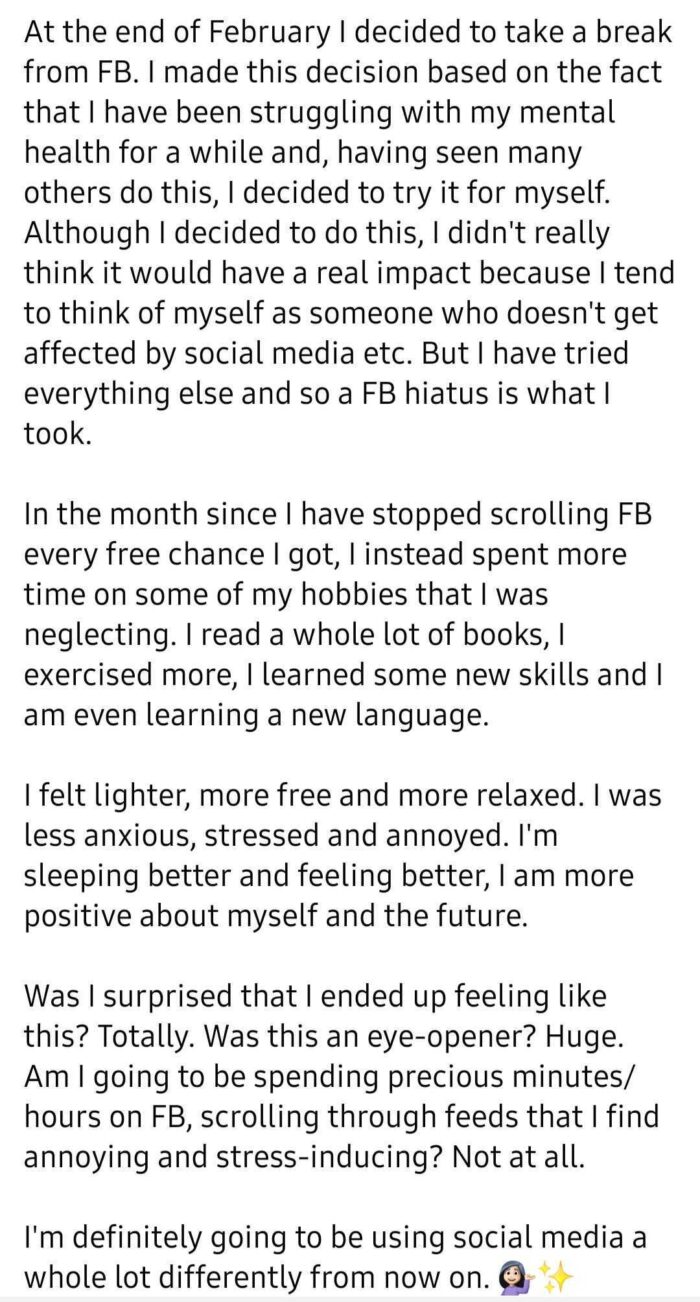
A student I used to teach decided to take a break from Facebook for mental health reasons.
I could actually end this post right now because my student has succinctly summed up why you should take a social media hiatus and do a digital detox! But because I know you love reading my articles😉, let’s go into more depth about why you need to take a digital detox as soon as possible.
Five Reasons to Do a Digital Detox
- It’s an addiction. From my brief research on this topic, I found out that while an addiction to technology is not officially recognised in the DSM-5 (a manual professionals use to diagnose psychiatric illnesses), an addiction to technology and overusing your mobile devices can lead to physical, psychological, and social issues. Think about it: I’ve read tons of articles about people changing their physical appearances either because of some trend on TikTok or because they want to look ‘more attractive’ or have Kim Kardashian’s butt (I know I’m coming across as facetious, but people going under the knife to look like photoshopped celebrities is a real thing).
- Digital devices prevent getting a good night’s rest. This goes without saying. Bright screens and blue light, loud noises, bad news, stupid but funny memes that keep you scrolling for more … this all keeps your brain buzzing and alert, which can lead to poor sleep and insomnia. Next time you want to watch another episode after the one ending on a cliff-hanger, try not to! As we’ve mentioned in our other posts, getting restful sleep is SO important for your overall well-being and staying productive and on top of your studies. If you’re on your phone right before bedtime, use a mobile app like Headspace to help you wind down with guided meditation or breathing exercises.
- You’re no longer connecting in real-time. Next time you’re on a train, at a restaurant, or in a park, look around and see how many people are hunched over their phones in zombie-like mode. It’s disconcerting how immersed we are in technology all.the.time. I’ve been on plenty of coffee dates with friends who can’t stay off their phones during our chat –they’re either too concerned about posting their coffee on Instagram or constantly checking their phones every two minutes for new notifications. Referring back to the mom I mentioned at the beginning of this post, this is what she had to say on the moment she realised she needed to ditch her smartphone: ‘I was on my mobile at a playground with the kids, and I looked up and every single parent – there was up to 20 – were looking at their phones, just scrolling away … I thought “when did this happen?” Everyone is missing out on real life. I don’t think you get to your death bed and think you should have spent more time on Twitter or reading articles online.’ Case and point.
- You’re falling into the trap of comparison. I’m sure you’ve seen or heard it repeatedly: What you see on social media is mostly someone else’s highlights reel. I know that (thankfully), more and more people are taking to social media to be honest about their daily lives and share their struggles and negative experiences, BUT this still doesn’t stop us from playing the comparison game. For instance, I follow quite a few fitness influencers on Instagram who share their ups and downs. Of course, I love them and appreciate their advice, but this still doesn’t stop me from comparing my body to theirs and wishing I looked like them. Also, it grates my cheese to NO end when I see people liking and praising the likes of Kim Kardashian’s or Kylie Jenner’s photos on Instagram. I apologise if you’re a fan, but I think it’s sad to see how we praise such unrealistic body goals and beauty standards. Ughhh … social media really can be more of a curse than a blessing, right?
- Your mental health is spiralling. This is the big one. Being addicted to tech, social media, and the news takes a massive toll on your mental and emotional well-being. The media is notoriously sensational. Headlines are designed to make you click. The news is overwhelmingly negative and panic-inducing. Add that to the comparison game you’re playing with people on social media with a shower of addictive behaviour, and you’ve got the perfect storm for depression and anxiety. Plus, all the mindless scrolling you’re doing and the money you might be spending on items you saw in the countless ads you’re bombarded with (ahem, me and clothes apps) just add to this toxic relationship we have with tech.
Did you know? Notifications are designed to keep you coming back and wanting more. It’s why you keep checking your phone or refreshing your social media feeds. All this stuff has been purposely designed to get you to click and keep wanting more. If you haven’t watched The Social Dilemma yet, I implore you to (this is the only time in this post where I’ll actively tell you to use tech!).
Also, if these reasons aren’t compelling enough, this is what Selena Gomez has to say:
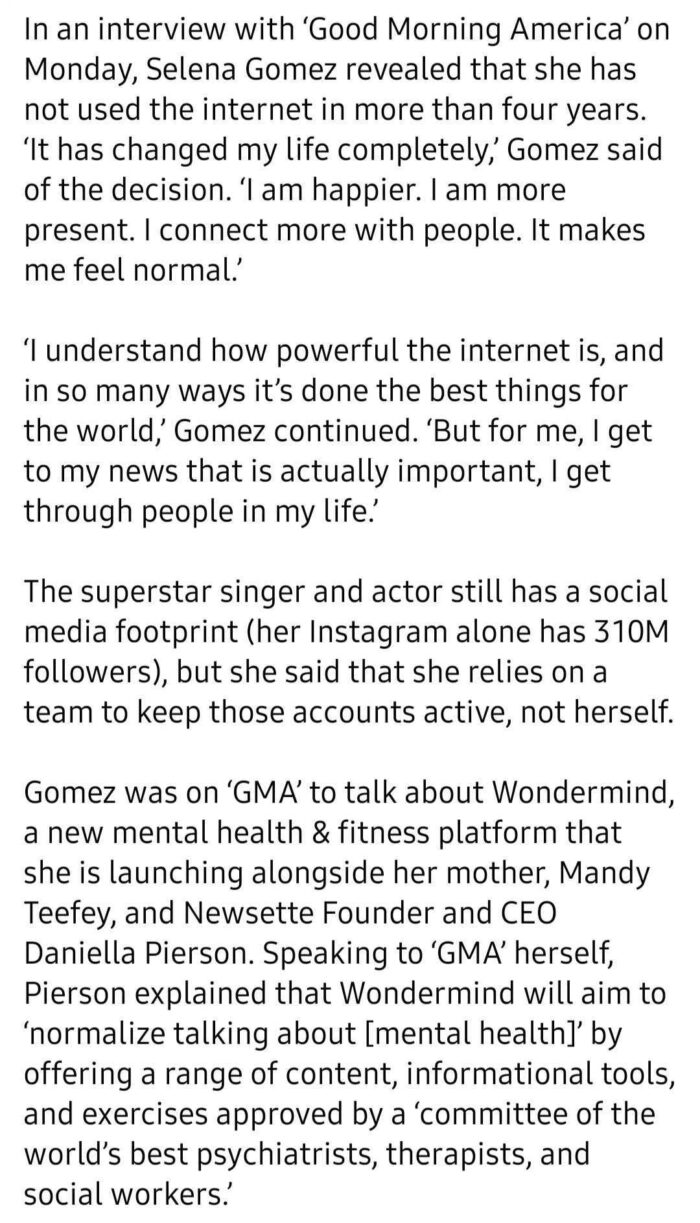
Singer and actress Selena Gomez’s reasons for not using the internet.
Your Digital Detox Guide: Eight Steps to a Healthier Relationship With Tech
‘My thoughts are freed up from constantly being cognitively connected to a machine that I need to feed with energy and money. I think that the danger of technologies is that they are emptying our lives.’ – Alex Dunedin, an educational researcher and tech expert who got rid of his smartphone to pursue a healthier lifestyle.
Hopefully, by now, I’ve convinced you to consider taking a digital detox. Now, in my opinion, there are no hard and fast rules on how to take a digital detox, but here are some helpful guidelines to get you started and in the right frame of mind:
- Set your goals and intentions, and be realistic. As I mentioned above, it’s important to define the ‘why’ behind your digital detox and set reasonable, realistic, and achievable goals. No one is saying you have to abstain from all forms of tech for a year. Nope. Start off small by committing to goals like not using your phone at the dinner table or going for a walk during your lunch break instead of scrolling on your phone. You can then take it up a notch by committing to not using your phone for a weekend or refraining from using social media apps for a week or two. You need to choose what works for you in the context of your studies and work life. Social media apps like Instagram allow you to set limits on the time you use them each day. Why not set a limit of 15 minutes for each app and see where that takes you.
- Choose a specific detox. This ties into point one. If you don’t want to go completely off-grid, choose a specific detox that will benefit you. If you know social media is eating your time and making you feel bad about yourself, then focus purely on a social media detox. If you’re addicted to the news or games, try and delete some of these apps off your phone. You need to detox in a mindful way as this will help you change the way you interact with your tech. Heck, you can even choose to disable comments on your Instagram to protect your peace … this all counts!
- Get rid of unnecessary distractions. Turn off notifications for apps that aren’t necessary (like news apps, Instagram, Twitter, Facebook, etc.). You don’t need to know that Kim K (sorry, I know I keep going back to her) just posted a photo of her and Pete, and you definitely don’t need to follow another trending hashtag about what Billie Eilish wore to such-and-such an event. I’ve personally turned off notifications for all apps, including WhatsApp. Also, when you’re working/studying, put your phone in another room so that you’re not tempted to reach for it every few minutes.
- Dedicate a specific time of day to catch up. Unless it’s an urgent phone call or text, try and refrain from replying immediately to texts and comments. Set 30 minutes aside at some point during your day to catch up on replies. Or even wait until the weekend. I always tell my friends that I will get back to them when I can, and we have an agreement on this. And if you’re a big fan of posting on TikTok or Instagram, use the same 30-minute period to do this, and use the rest of your day for other things that don’t involve your phone or laptop (unless you’re working/studying of course).
- Start small; go bigger. Once you’ve achieved your smaller digital detox goals, why not try setting one day each week to be completely tech-free (unless it’s work or study related)? You can then take this up to a weekend and even a week at some point! I once bought a cheap phone only capable of SMS and calls and gave my smartphone to my mom. It was so freeing being away from my smartphone, let me tell you. It definitely reduced my stress and anxiety.
- Find a hobby to do when you’re not using your devices. What would you like to do now that you don’t have your phone or access to Netflix? More reading? Getting outside more? Playing an instrument? Gardening? You can do so many things that are good for your well-being that don’t involve tech. Find what you want to do and actively pursue it during your detox sessions.
- Communicate your intentions. Tell your friends and family that you’re going on a detox so that they know why you’re not replying. Ask them for support. If you’re heavily attached to your phone, you’ll need some encouragement and help – don’t be afraid to ask for it.
- Track your progress and create a lasting habit. Monitor how you’re doing with your detox and assess how you’re feeling (use a PAPER diary for this😉). The ultimate goal of a digital detox is to improve your overall well-being and your relationship with tech. It’ll be very easy to slip right back into negative patterns with your tech after a detox; that’s why you need to reframe how you use tech by being mindful of how, when, and where you spend your time on your devices.
Digital Detox for Teens and Students
OK, OK … I get it. You’ve grown up in the digital age. Phones are an extension of your arm. You might even be an influencer! BUT fun fact, I’m still ‘young’ enough to know what I’m talking about when it comes to smartphones and whatnot! I grew up when phones were evolving from bricks to flip phones, and social media was just starting to rear its (ugly) head (MySpace, haha). So I’ve witnessed how our interactions have changed with tech over the years. I’ll be the first to admit that this post is also written for me!
Here are some helpful things I’ve tried over the years when it comes to digital detoxing:
- Giving my smartphone to my mom for two weeks and getting by with a Nokia (a cute little thing) only capable of calls and SMSes (no games, no music, nothing else … because come on, Nokias with Snake are addictive, too!).
- Not using my smartphone as an alarm clock.
- Disabling my social media accounts and deleting them off my phone. You don’t need to delete your social media apps completely.
- Curating my feeds. I try to curate my Instagram feed by following accounts that are good for me. Please unfollow people that make you feel insecure. Social media is all about algorithms … you get more and more recommended content based on what you search for, so be careful.
- Actively choosing not to download any more social media and news apps. I refused to get TikTok and Snapchat, and trust me; I don’t feel I’m missing out on anything.
- Choosing to be more present. Nowadays, when I sit on a train, I purposely look out the window at the passing scenery. Or, when I’m walking, I keep my phone in my bag and take in the sights, sounds, and smells around me.
It’s Time for a Digital Detox Day
If you’re constantly checking your phone, refreshing your feeds, feeling bad about yourself, and experiencing increased stress and anxiety, it’s time for a digital detox. I’m definitely going to start planning more digital detox days where I completely switch my phone off. I hope you’ll join me in making small steps to improve your relationship with your tech devices, not only for your sake but also for your family, friends, and relationships. If you need a bit of a kickstart, check out this app (ironic, I know!) I just found that helps you with your digital detox: Off the Grid.
And how about we set one of our first small goals together? If the average person is spending 4.8 hours a day on their phones, let’s try and take this down to two or three? It seems reasonable, yeah?!
I hope you start your detox soon and remember to look after yourselves!
PS If you are struggling to stay off your phone and can’t bring yourself to detox on even a small level, you should ask for support as soon as possible.





